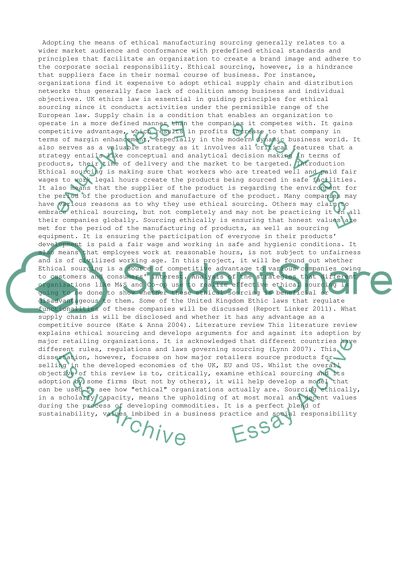Cite this document
(“Whether Ethical Sourcing A Source Of Competitive Advantage Dissertation”, n.d.)
Retrieved de https://studentshare.org/business/1392494-is-ethical-soucing-a-souce-of-competitive
Retrieved de https://studentshare.org/business/1392494-is-ethical-soucing-a-souce-of-competitive
(Whether Ethical Sourcing A Source Of Competitive Advantage Dissertation)
https://studentshare.org/business/1392494-is-ethical-soucing-a-souce-of-competitive.
https://studentshare.org/business/1392494-is-ethical-soucing-a-souce-of-competitive.
“Whether Ethical Sourcing A Source Of Competitive Advantage Dissertation”, n.d. https://studentshare.org/business/1392494-is-ethical-soucing-a-souce-of-competitive.


